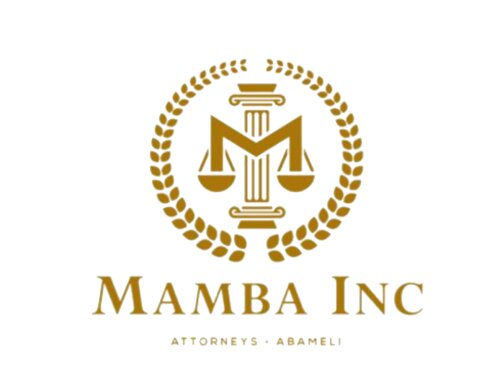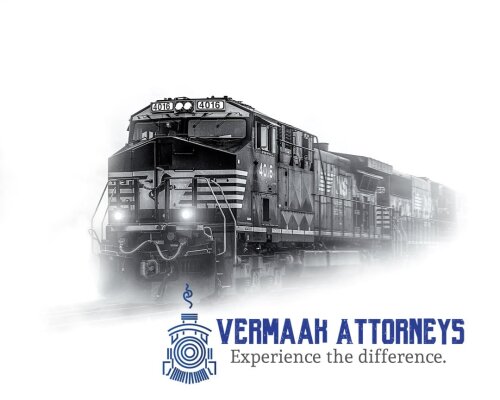Best Renewable & Alternative Energy Lawyers in Centurion
Share your needs with us, get contacted by law firms.
Free. Takes 2 min.
List of the best lawyers in Centurion, South Africa
About Renewable & Alternative Energy Law in Centurion, South Africa
Renewable and alternative energy is a rapidly growing sector in Centurion, located within the Gauteng province of South Africa. As businesses and individuals seek sustainable solutions, technologies such as solar power, wind energy, biogas, and small-scale hydropower are becoming increasingly prevalent. The legal environment surrounding these initiatives is complex, involving national regulations, municipal bylaws, energy supply contracts, environmental protection rules, and incentives aimed at promoting clean energy development. Legal professionals in Centurion assist clients in navigating these regulations, securing permits, and ensuring compliance with all pertinent requirements for renewable energy projects.
Why You May Need a Lawyer
There are several situations where legal expertise can be critical in the renewable and alternative energy sector. These include:
- Negotiating and drafting contracts with energy providers, government entities, or private investors
- Securing licenses and permits for developing renewable energy installations
- Addressing disputes related to land use, zoning, or environmental compliance
- Protecting intellectual property associated with new energy technologies
- Ensuring regulatory compliance when connecting systems to the national grid
- Dealing with feed-in tariffs, subsidies, or government incentive programs
- Addressing supply chain and procurement issues
- Facilitating mergers, acquisitions, or investments in renewable energy companies
Given the evolving nature of the legal landscape, professional legal guidance can help avoid costly mistakes and ensure successful project outcomes.
Local Laws Overview
Renewable and alternative energy in Centurion is regulated under a combination of national, provincial, and municipal frameworks. Key legislation and policies include the National Energy Act, the Electricity Regulation Act, and integrated resource plans developed by the Department of Mineral Resources and Energy. Eskom, the national utility provider, as well as the National Energy Regulator of South Africa (NERSA), play significant roles in regulating and facilitating grid connections, licensing, and tariffs.
Specific municipal bylaws in Centurion (managed as part of the City of Tshwane Metropolitan Municipality) may also impact aspects such as zoning, building permits for rooftop solar installations, and environmental impact assessments. In addition, environmental frameworks enforced by the Department of Forestry, Fisheries and the Environment require compliance with environmental authorisation processes, especially for large-scale projects.
Incentive programs, such as Section 12B of the Income Tax Act, offer accelerated depreciation for renewable energy assets, encouraging investment in this sector.
Frequently Asked Questions
What types of renewable energy projects are common in Centurion?
The most common include rooftop solar photovoltaic (PV) systems, solar water heating, small-scale wind projects, and biogas installations. Large-scale commercial solar farms are also emerging in surrounding areas.
Do I need permission to install a solar panel system at my home or business?
Yes, you must comply with municipal building bylaws and obtain approval from the City of Tshwane before installing grid-connected solar PV systems. For off-grid installations, requirements may differ, but environmental and safety standards still apply.
Can I sell excess electricity generated from my solar panels back to the grid?
Net-metering and power buyback options are being piloted or implemented in some parts of South Africa. Approval from your municipality and Eskom, and compliance with technical standards set by NERSA, are required.
What incentives exist for renewable energy investments in Centurion?
There are tax incentives like Section 12B that allow for accelerated depreciation on renewable energy assets. Municipal or national grant programs may also be available, subject to changing government policy.
How are land-use and zoning issues managed for renewable projects?
Projects must comply with local zoning laws. Rezoning applications or special permits may be necessary for installations in certain areas, especially for large-scale projects.
What environmental assessments are required?
Larger projects typically require an Environmental Impact Assessment in line with national regulations. Smaller projects may need basic assessments but are also subject to environmental management rules.
Who regulates energy supply and grid connection in Centurion?
Energy regulation is overseen by NERSA and Eskom at the national level, along with the City of Tshwane at the municipal level for local grid matters and small-scale embedded generators.
Is financing available for renewable and alternative energy projects?
Yes, several banks and financial institutions offer green finance products. Some government programs also provide grants or low-interest loans for qualifying projects.
Do I need a license to operate a small-scale power generation facility?
Some small-scale embedded generators under a certain capacity threshold are exempt from full licensing but must still be registered with NERSA and comply with technical and safety standards.
Can legal disputes arise in renewable energy projects?
Yes, common disputes involve contract breaches, delayed construction, land or zoning conflicts, and noncompliance with environmental or technical requirements. A lawyer can help resolve these issues effectively.
Additional Resources
- Department of Mineral Resources and Energy - Provides guidelines, policies, and legislative frameworks
- National Energy Regulator of South Africa (NERSA) - Responsible for licensing and regulations
- Eskom - Information on grid connection requirements and power purchase agreements
- City of Tshwane - Guidance on municipal approvals and local bylaws
- South African Photovoltaic Industry Association (SAPVIA) - Industry standards and updates
- GreenCape - Nonprofit support for green economy initiatives
- Environmental Affairs Department - Environmental Impact Assessment guidelines
Next Steps
If you are planning to begin a renewable or alternative energy project in Centurion, it is advisable to:
- Consult with a lawyer who specializes in energy law to understand all legal requirements
- Research local municipal guidelines and begin initial discussions with the City of Tshwane if necessary
- Gather all relevant documents about your project, including site plans and intended technology
- Investigate available incentives and register for any necessary programs or tax benefits
- Engage with reputable installers and contractors experienced in local compliance matters
- Ensure all contracts and agreements are reviewed for legal robustness
By seeking knowledgeable legal support early, you can streamline the process, minimize regulatory risks, and maximize the benefits of your renewable and alternative energy investment in Centurion.
Lawzana helps you find the best lawyers and law firms in Centurion through a curated and pre-screened list of qualified legal professionals. Our platform offers rankings and detailed profiles of attorneys and law firms, allowing you to compare based on practice areas, including Renewable & Alternative Energy, experience, and client feedback.
Each profile includes a description of the firm's areas of practice, client reviews, team members and partners, year of establishment, spoken languages, office locations, contact information, social media presence, and any published articles or resources. Most firms on our platform speak English and are experienced in both local and international legal matters.
Get a quote from top-rated law firms in Centurion, South Africa — quickly, securely, and without unnecessary hassle.
Disclaimer:
The information provided on this page is for general informational purposes only and does not constitute legal advice. While we strive to ensure the accuracy and relevance of the content, legal information may change over time, and interpretations of the law can vary. You should always consult with a qualified legal professional for advice specific to your situation.
We disclaim all liability for actions taken or not taken based on the content of this page. If you believe any information is incorrect or outdated, please contact us, and we will review and update it where appropriate.













